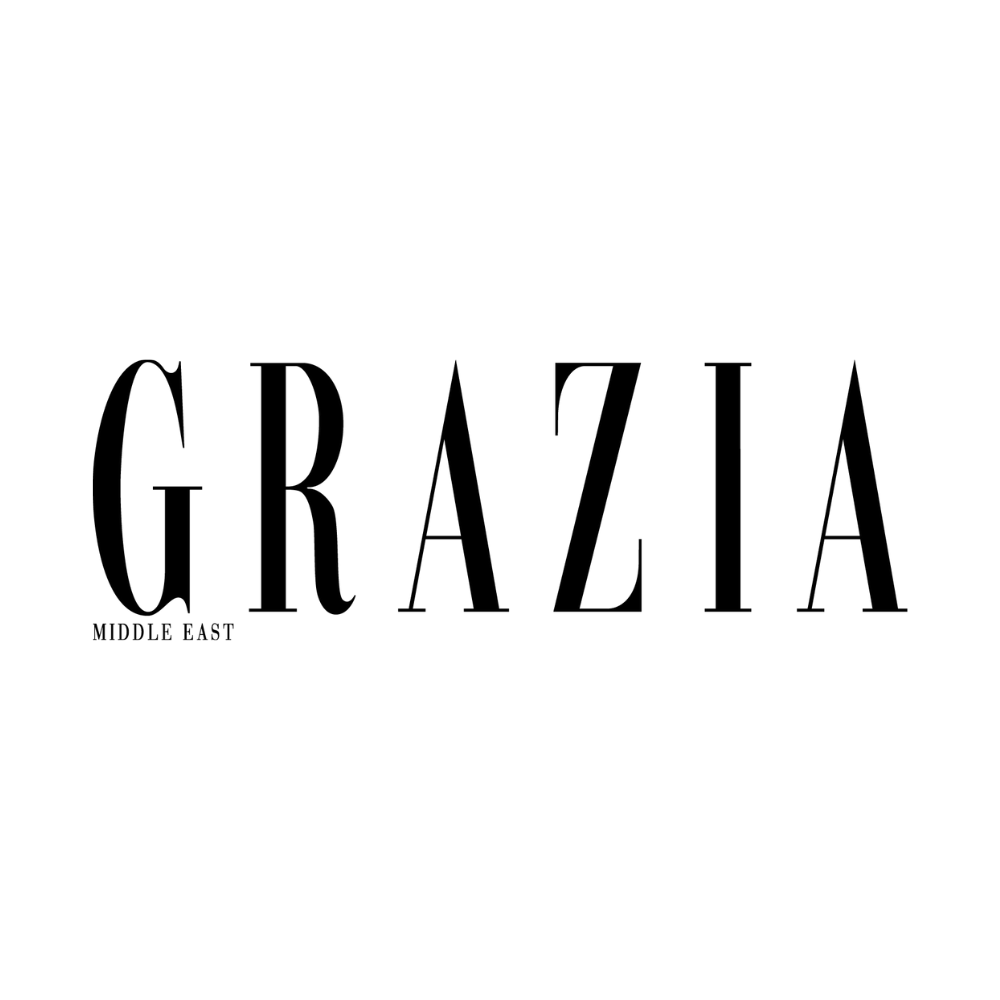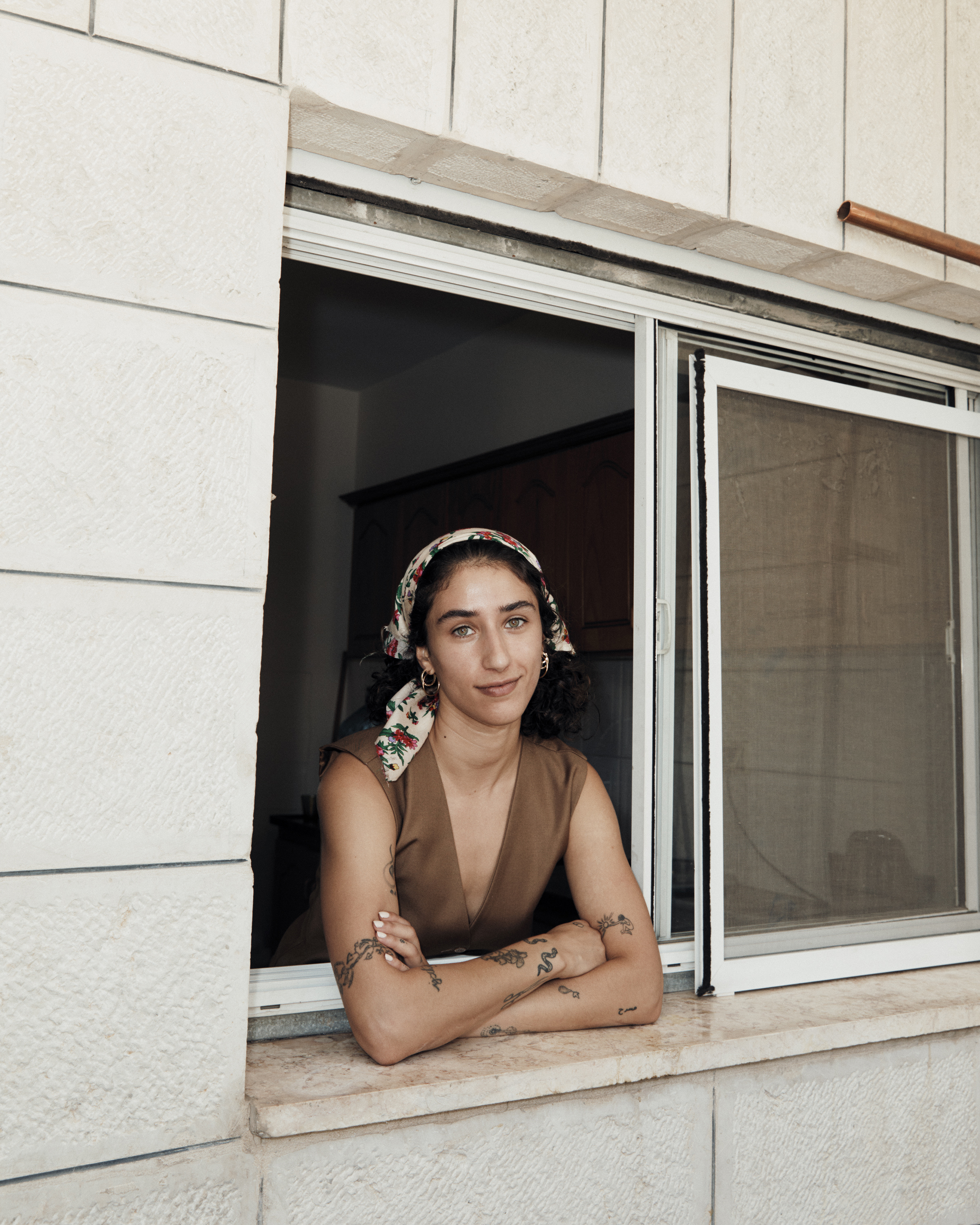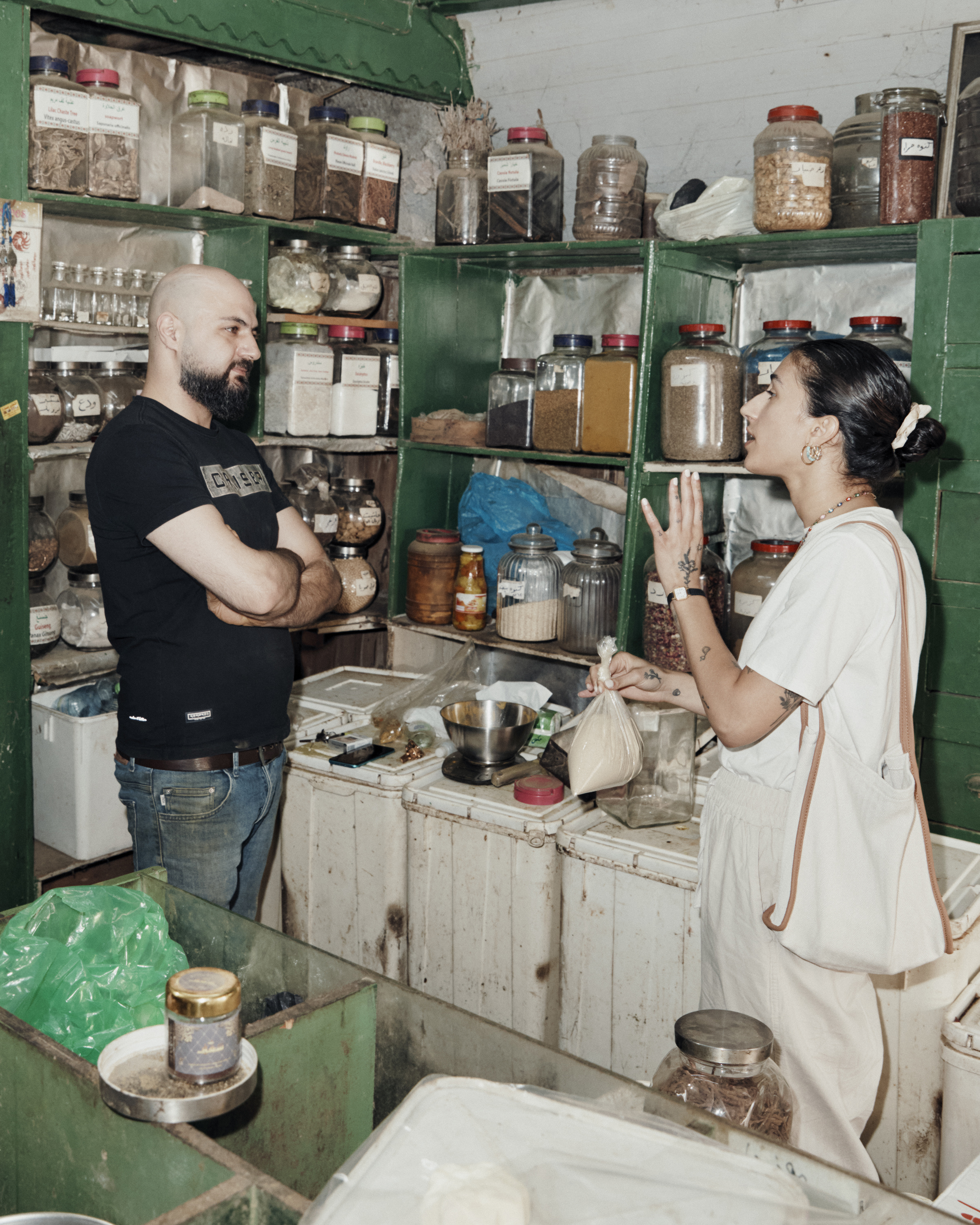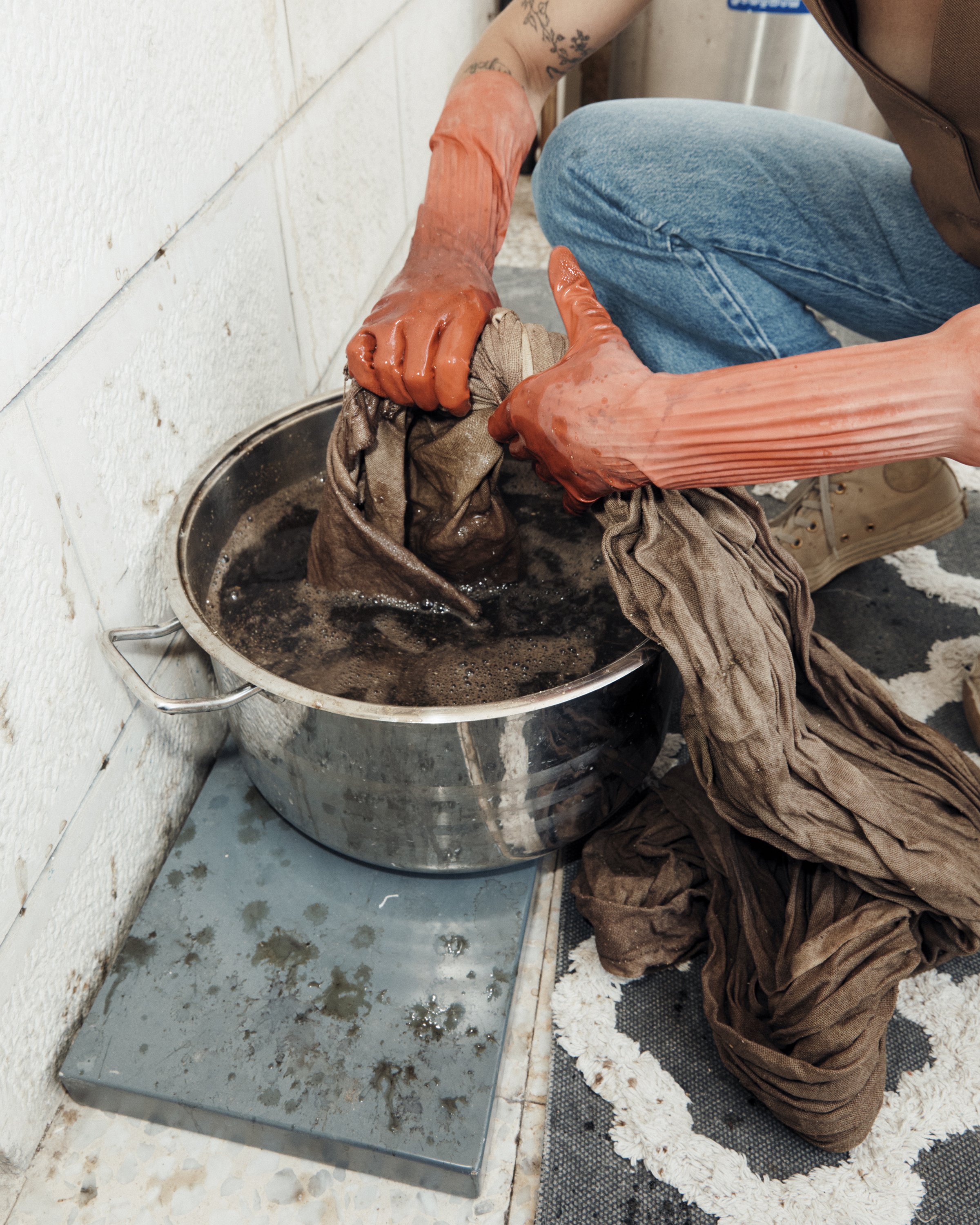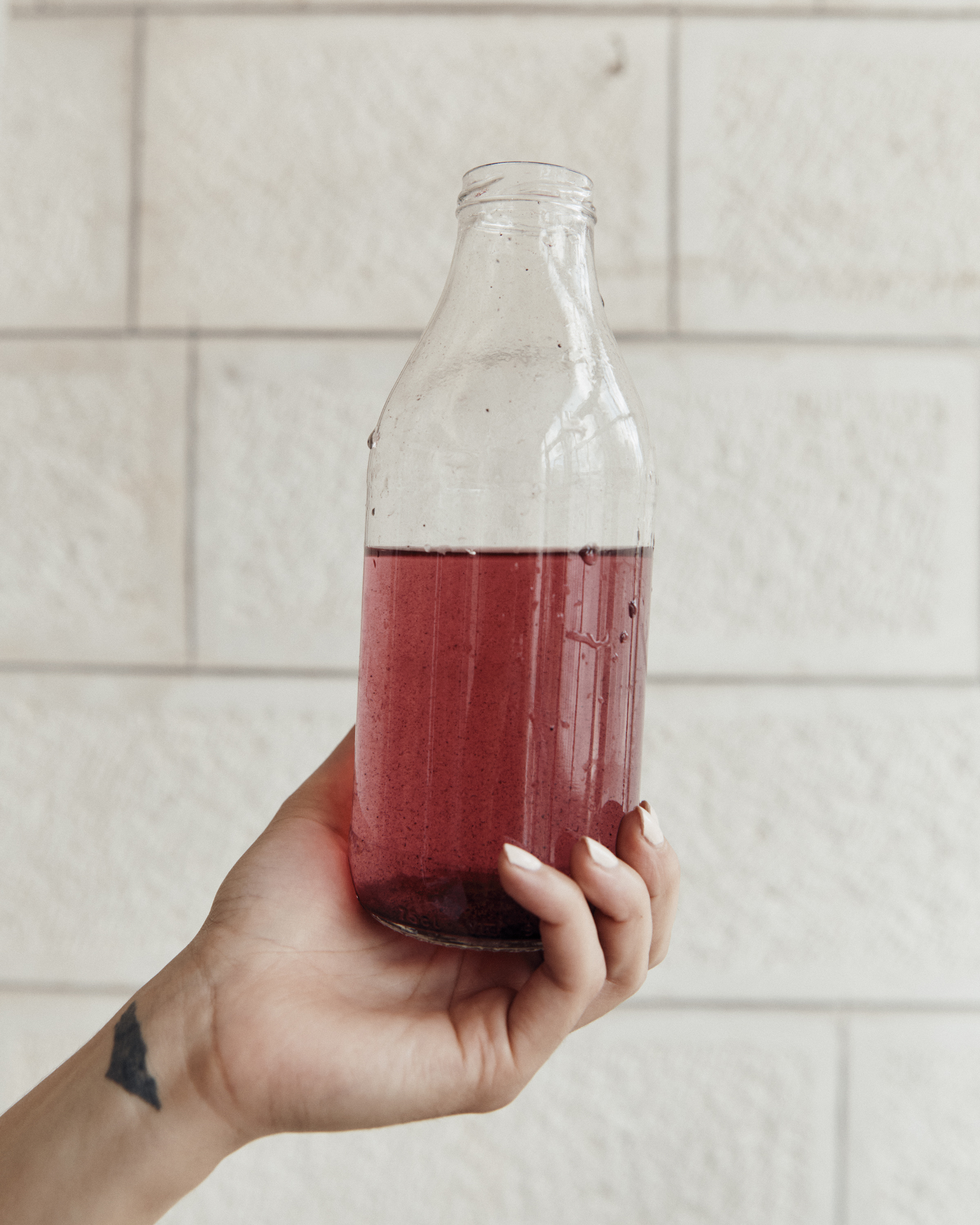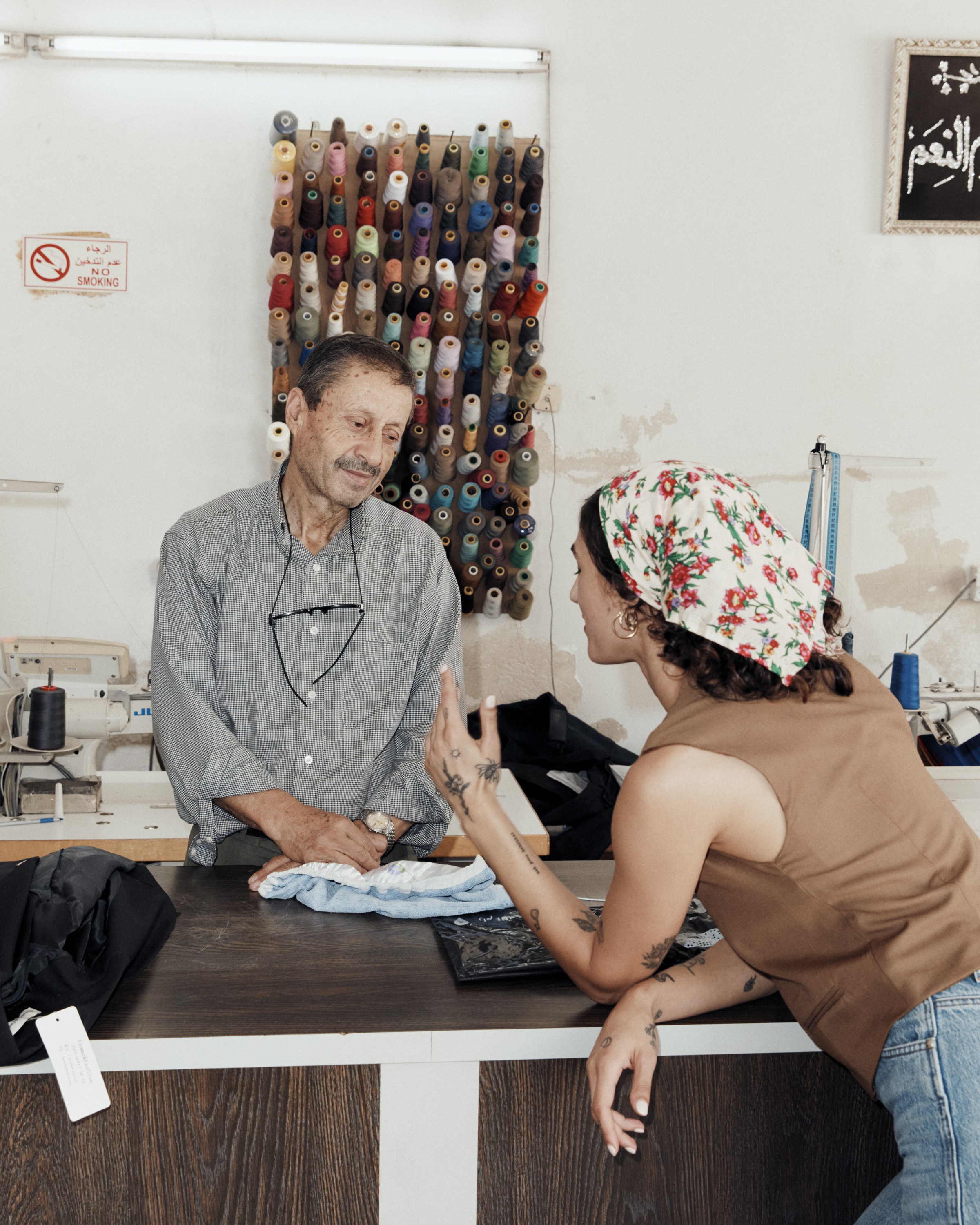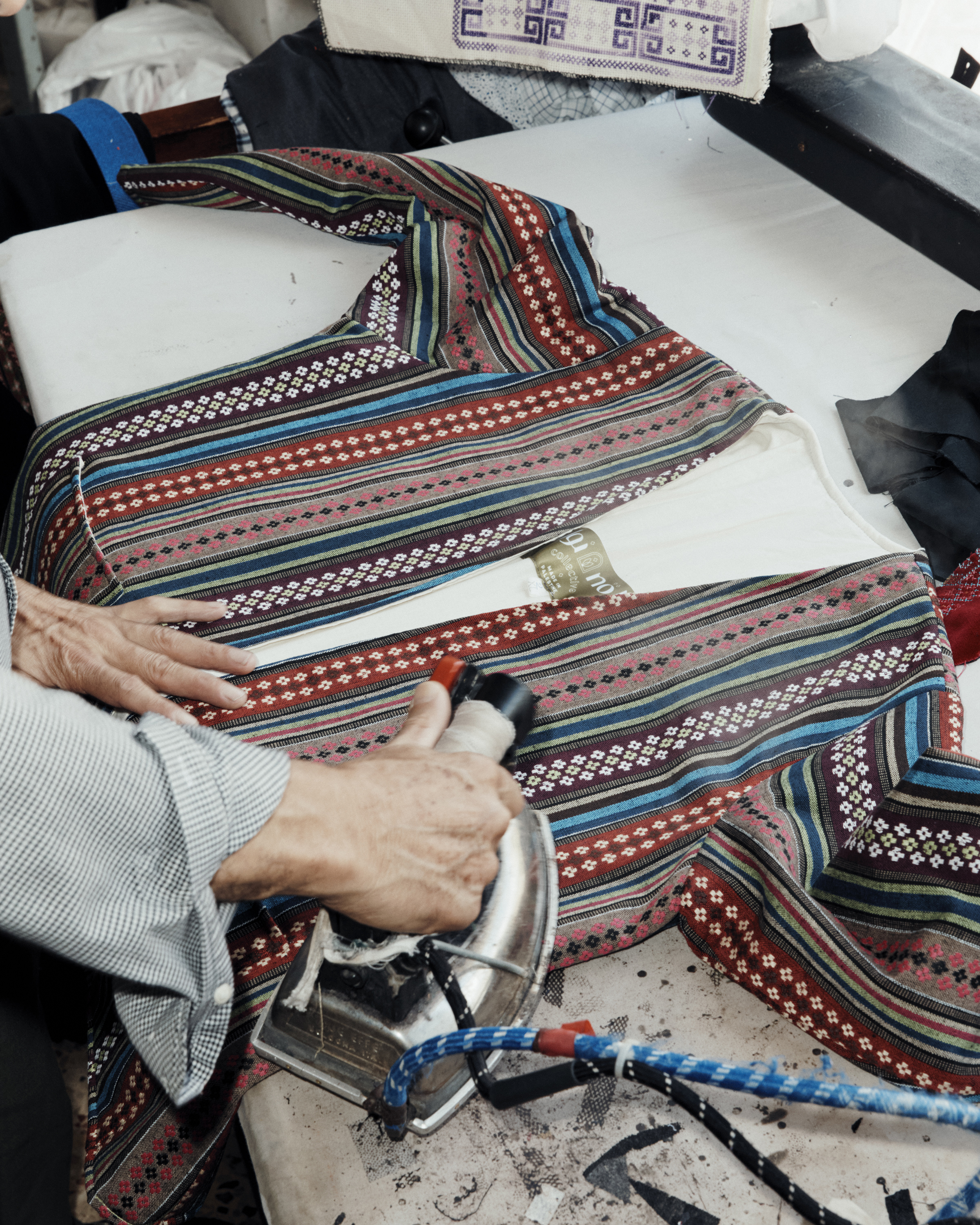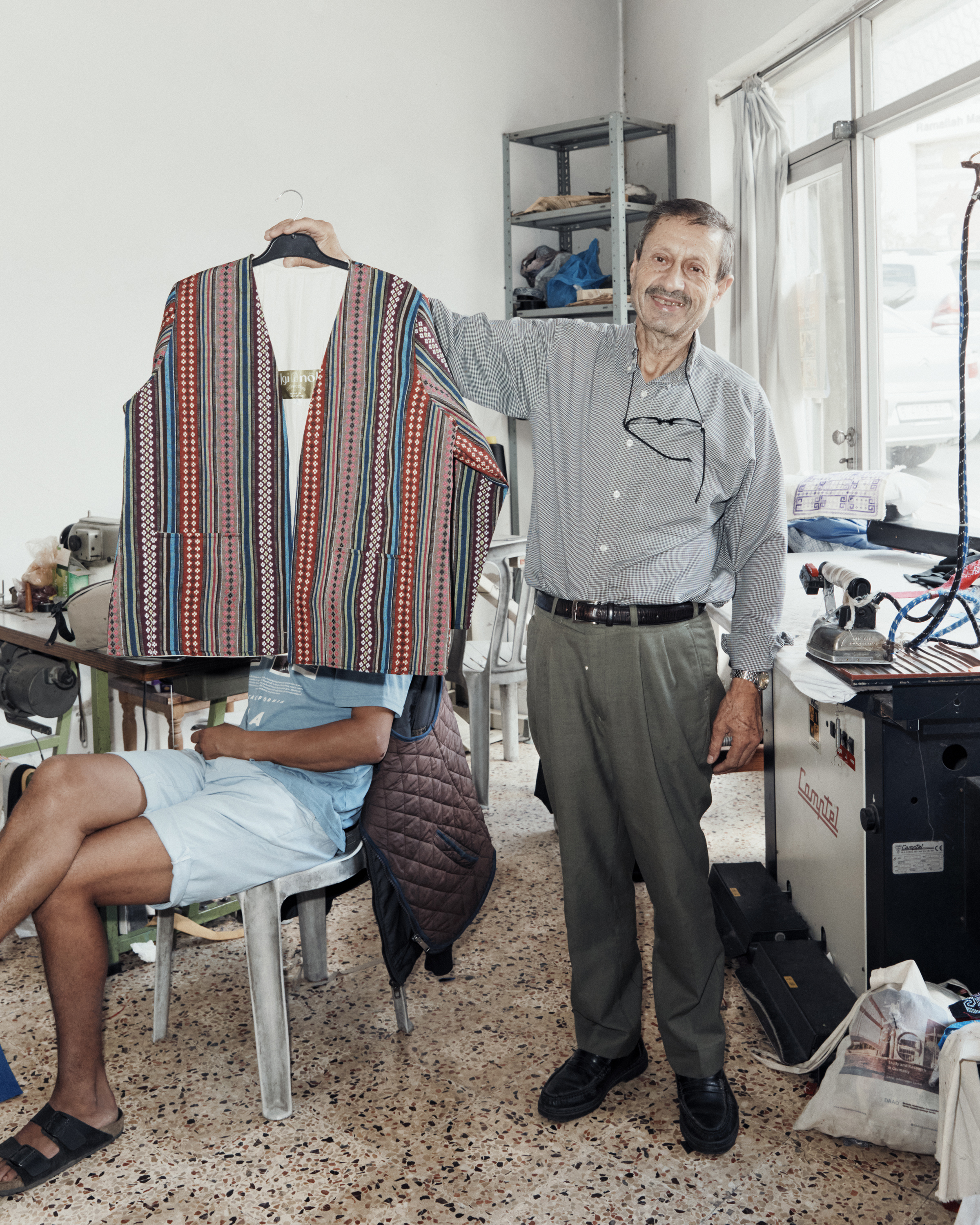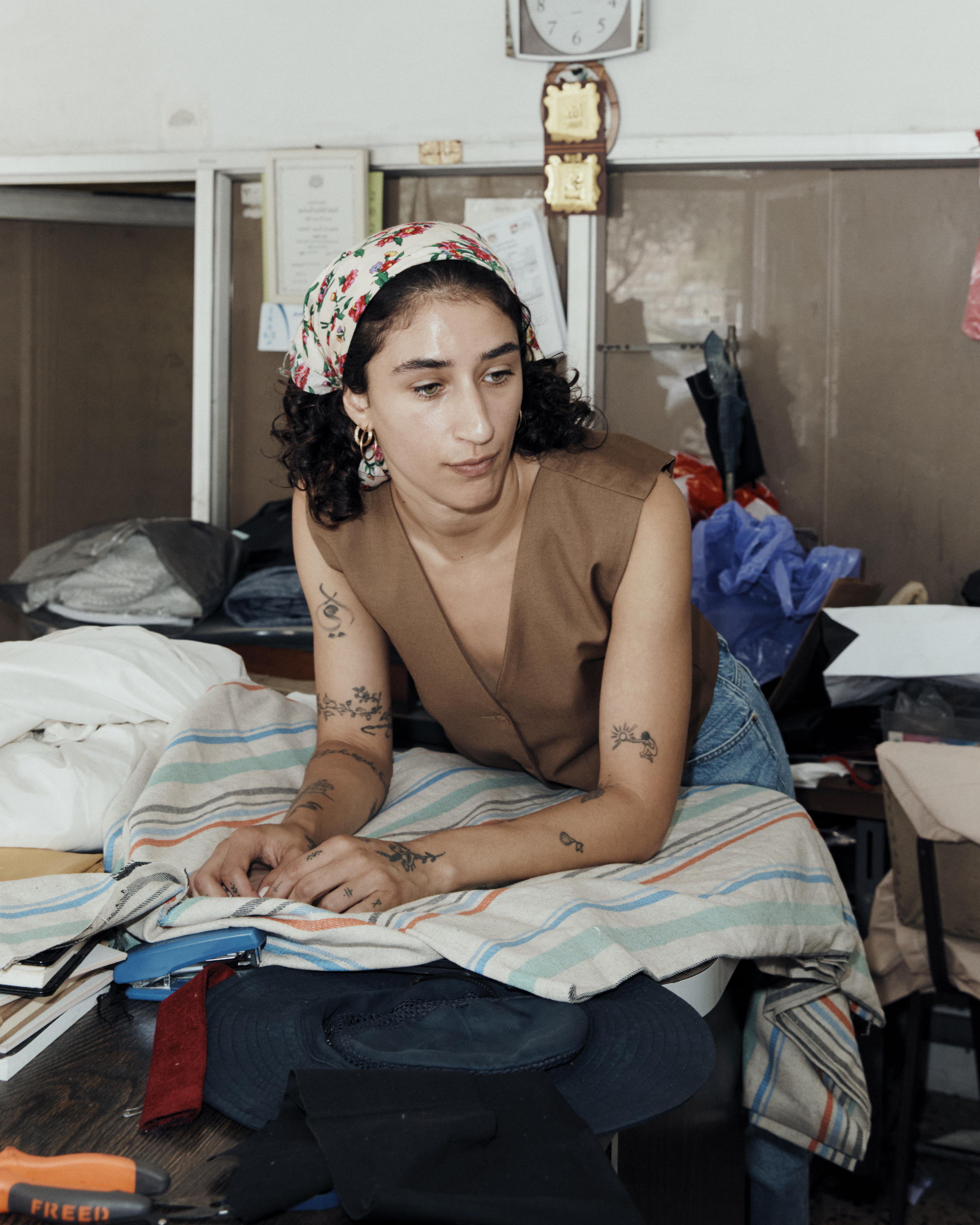For Yasmeen Mjalli and her intersectional fashion brand, Nöl Collective, it all begins and ends with a return to the land. In 2017, the young soon-to-be designer repatriated to her native Palestine after growing up and spending much of her life in the American South with consistent summer trips to visit her grandparents and extended family in Tubas, a vibrant olive green-speckled village, equidistant to Nablus and Jenin and proximal to the Jordan Valley, where many of the local residents go to work by day, tending to the land, only to return to Tubas and homelife by night.
In her more recent and permanent move, Mjalli settled in Ramallah, an urban environment starkly different than the village summers she was accustomed to; one that offered more creative space and opportunity, but also more sensory experiences that she wasn’t accustomed to in the US, at least not to the same degree. It was one of these foreign experiences, exposure to street harassment, that Mjalli’s first brand BabyFist was born. When asked, Mjalli often describes feeling a sense of shock at the pervasive nature of street harassment in her home country, and as a result, she felt compelled to speak about it, both collectively with others as well as through art.
In its first iteration, BabyFist was a radical response. The brand’s principal aim was to rally a call for social and gender equality through a typewriter project where Mjalli set up an installation in the heart of Ramallah and invited the community to share their experiences by typing them out and leaving the pages for others to read. Though the project was wildly successful and hit home with many locals, it wasn’t until Mjalli created an Instagram account, where she shared a photo of a hand-painted denim jacket with the words “not your habibti” decorating the back, the slogan surrounded by pastel-coloured flowers. From there, her designs took on a life of their own. People began requesting “not your habibti” jackets at a rate that surprised Mjalli, a sign that her experience and her response to it, resonated with many others.
“For Mjalli, the orbit and system behind Nöl will continue to evolve and expand in unexpected ways, but one thing is for sure, no matter what the changes are, everything will always lead back to Palestine.”
BabyFist existed as such for three years and, as Mjalli puts it, “continuously adapt[ed] and evolve[ed] as it took in new information, new perspective, more nuance”, until September 2020, when she and her team announced not only a name change but also, a shift in creative direction. From this rebirth, Nöl Collective was born. Nöl (نول) in Arabic means loom, and specifically for the collective, it serves as a homage of sorts to the tradition of creating fabrics in Gaza, and the since-destroyed Galilean city of Majdal, before the establishment of Israel and the military occupation of the Palestinian Territories. Raw materials, such as camel and goat hair, or sheep’s wool, were collected and spun into threads before the dyeing process, which for centuries in Palestine, privileged natural dyes from plants, fruits, and herbs before the introduction of more synthetic pigments.
In its commitment to transparency, Nöl Collective shared a series of NatGeo photos on its Instagram page, documenting the various stages of the Palestinian looming tradition, taken by photographer Thomas Abercrombie in the 1970s. The images are vibrant. They showcase how Palestinian, and by extension, indigenous Mediterranean artisans fashion a living through intergenerational practices on the one hand and use natural and inherently sustainable materials on the other. This practice, this tradition—for Mjalli, her team, and local partners—is the core element of what makes the collective tick.
Today, the thing that distinguishes Nöl Collective, despite the emergence of quite a few Palestinian brands since Mjalli’s 2017 launch, is partnership. Mjalli’s ethos is to keep all production “hyper-local” and to partner directly with women’s cooperatives, family-run tailor shops, local graphic designers, and more recently, apothecaries and spice shops in Nablus—which have existed for seven generations—for natural dye agents. Mjalli keeps the community behind the production of Nöl’s clothing and jewellery right at the fingertips of her followers. She centres the people who bring a garment or a piece of jewellery to life, documents the process of dying locally sourced silk with orange peels in her kitchen, and tells us exactly where she sources her fabrics; how a jacket is made with dead-stock Syrian silk brocade found in a shop in Jaffa. She talks about those who embroider a top or a pair of trousers. The process is always done with their consent and Mjalli rarely ever speaks except with the collective “we”. In her words, “if there isn’t a world behind garments, then I don’t want those garments”. For Mjalli, the orbit and system behind Nöl will continue to evolve and expand in unexpected ways, but one thing is for sure, no matter what the changes are, everything will always lead back to Palestine.



